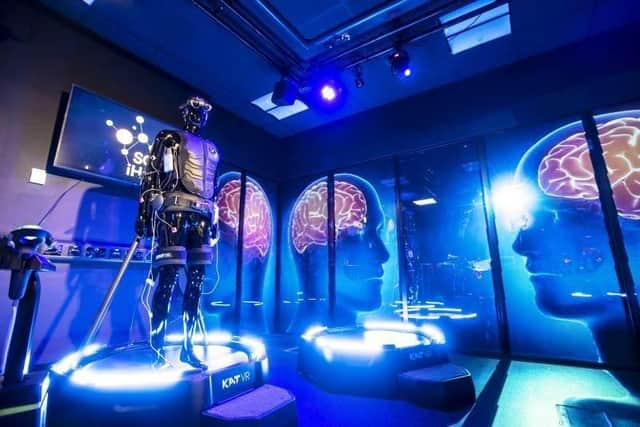UU Magee research recognised for long-term impact globally
and live on Freeview channel 276
The internationally renowned panel have independently judged UU as being in the top 10% of UK Universities for 4* and 3* research which delivers a positive and long-term impact on societies and economies globally.
The evaluation comes as part of the 2021 Research Excellence Framework (REF) assessment. REF is an independent assessment of the quality, impact and significance of research carried out by UK funding bodies every seven years.
Advertisement
Hide AdAdvertisement
Hide AdThe findings show that Ulster University has world leading expertise across a number of fields that impact across economic sectors and society globally.


At Magee, the academic groundwork includes research driving inclusion in music for disabled artists using creative technologies, as well as life-changing patient outcomes through neurotechnology.
Professor Frank Lyons and collaborators of his Inclusive Creativity concept aim to level the playing field in performance and composition for disabled musicians by developing new creative technologies and methodologies for their use.
Impacts include influencing creative practice of artists with and without disabilities, the development of accessible future-focused creative technologies for use by artists as well as personal and professional development and enhanced artistic achievement of artists with disabilities.
Advertisement
Hide AdAdvertisement
Hide AdThe research has also influenced strategy, curriculum innovation and professional training in the conservatoire sector and contributed to cultural and creative policy transformation.


Meanwhile, Professor Damian Coyle’s research focuses on life-changing patient outcomes through neurotechnology.
UU has significantly improved patient outcomes, stimulated the UK neurotechnology sector and promoted knowledge exchange arising from its AI for brain-computer interface (BCI) research.
Impacts include establishing non-subjective evidence of consciousness in brain-injured patients with prolonged disorders of consciousness with specific beneficial, life-changing outcomes and leading to a national neurotechnology trial with 17 hospitals and influencing two medico-legal High Court cases resulting in substantial compensation for brain-injured victims.
Advertisement
Hide AdAdvertisement
Hide AdThe research, led by Professor Coyle (pictured), has enabled a spinal-injured person to compete against other teams from around the world as a Cybathlete at Cybathlon 2016, 2019 (BCI series) and 2020) and has also led to the creation of a spinout company, NeuroCONCISE Ltd, employing five people and commercialising UU’s brain-computer interface research for maximum impact.


Ulster University Vice-Chancellor, Professor Paul Bartholomew, welcomed the REF accolade.
“This superb outcome for Ulster University confidently builds on our 2014 outcomes and demonstrates the depth and breadth of our research in diverse disciplines,” he said. “The emphasis we place on research with impact is fundamental to the purpose of the University, our research community and our many partners in other universities and sectors, so I’m delighted that this has been recognised through this process.
Ulster University’s REF impact case studies can be viewed on its website.